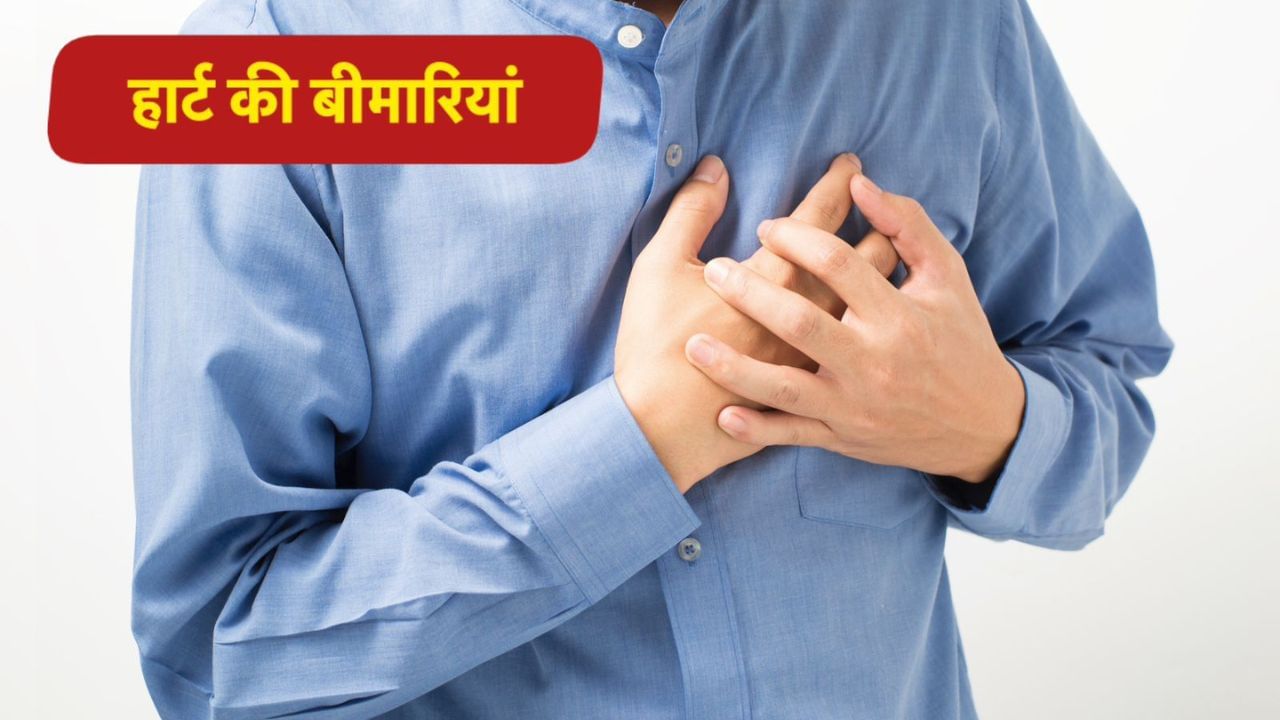5 common heart diseasesImage Credit Source: Getty Images
Heart diseases: Cases of heart disease are increasing rapidly in India and the world. Earlier this problem was seen in most of the elderly, but now a large number of youth are also falling in the grip of these diseases. Changing lifestyle, stress, wrong eating and lack of physical activity are major reasons. Experts believe that the risk of these diseases can be reduced to a great extent by timely identification and prevention.
In today’s time Heart disease The risk of diabetes, blood pressure, obesity and high cholesterol is more in people. People who have a history of heart disease in the family, they also have more risk. Smoking and alcohol consuming, away from physical activity and young people living under mental stress are now being affected by these diseases. Unhealthy catering, junk food and lack of sleep have also become a big reason among the people living in cities. Women, especially after menopause, may be a victim of heart disease due to hormonal changes. In this way, this danger is now associated with every age group and lifestyle.
What are the 5 common diseases occurring in the heart?
Coronary Artery Disease (CAD):
BLK- Dr. TS in Cardiology Department at Max Super Specialty Hospital. Clair It is said that the heart veins become block or narrow in it. Symptoms include chest pain, breathlessness, fatigue and sometimes jaw or arm pain.
Heart attack:
This is when the vein that provides blood to the heart is completely blocked. Sudden chest pain, sweating, nausea, restlessness and breathing are the main symptoms.
Aridamia (abnormal of beating):
In this, heartbeat becomes very fast, slow or unusual. The patient may have complaints like feeling of beating, dizziness, fatigue and unconsciousness.
Heart failure:
This happens when the heart is not able to provide enough blood to the body. Symptoms include persistent fatigue, swelling of the feet, breathlessness and discomfort when lying down.
High blood pressure (hypertension):
This is called a silent killer because it does not show any clear symptoms for a long time, but it gradually damages the veins and increases the risk of heart attack, stroke and kidney disease. Many people find it in routine checkup only. Headache, dizziness, fatigue and sometimes breathing can be signs.
How to rescue
Exercise at least 30 minutes daily.
Take diet rich in fruits, vegetables and fiber.
Stay away from smoking and alcohol.
Get blood pressure, sugar and cholesterol tested from time to time.
Adopt meditation or yoga to reduce stress.
Get enough sleep.
If you see a sudden symptoms, consult a doctor immediately.
